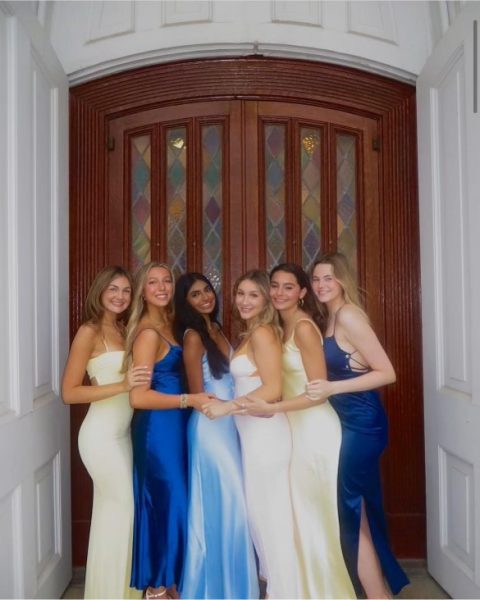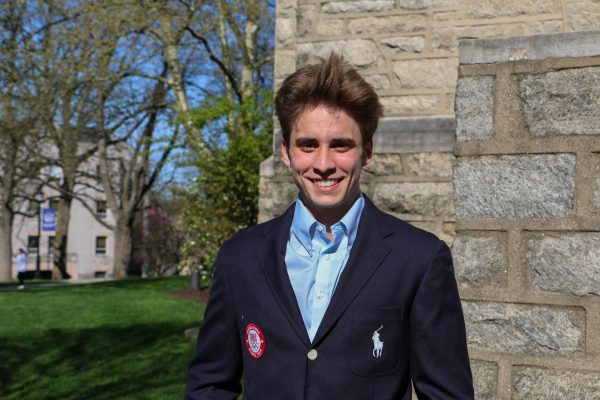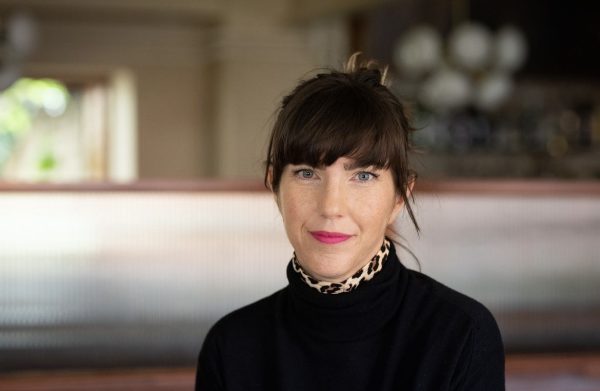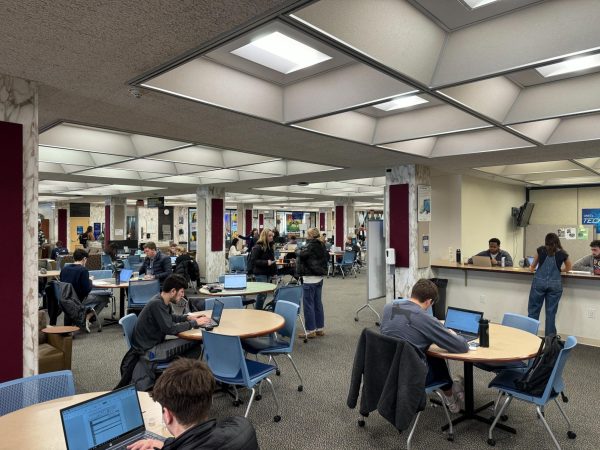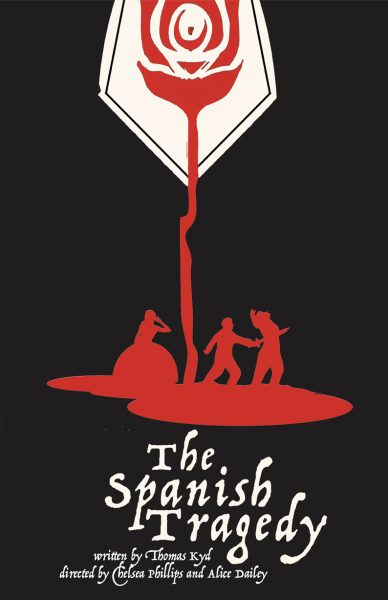Exploring the potential evolution of gay marriage in the Catholic Church
January 29, 2015
Whether you believe that mankind is the spawn of Adam and Eve or that it can be traced back much further through Darwinian evolution, religions are one of the few institutions of today that take an unwavering stance on these and many other scientific, personal and moral issues. Among today’s major religions, Christianity is the most popular around the globe, claiming over 2.2 billion followers. Yet, to some, the path to a good life does not have such a clear, guiding light.
Despite its long tenure as the Christians’ sacred canonical text, the Bible is full of ambiguous passages and tales that rely heavily on hermeneutics—the science of textual interpretation. As a collection of stories over 2,000 years old, the Bible as we know it may not be accurate enough to be taken verbatim. Rather, it may make more sense to derive meaning from the book as a whole.
The canons have been translated countless times between various languages and dialects, making it nearly impossible to demystify the world’s most popular text through mere scholarship alone. In fact, throughout the past few decades, political bouts from all over the world seem to have rustled up controversy within the Roman Catholic community and have forced even the most traditional Catholics into questioning age-old philosophies.
In particular, a recent trend in favor of gay marriage has led to legalization of same-sex marriages throughout 35 states, beginning with Massachusetts’ inaugural Supreme Court ruling in 2004. However, even though much of the rest of the world may be ready for these new laws to take effect, the Catholic Church—an outspoken opponent of gay marriage—seems divided on whether or not to change its views on the matter.
In what could prove to be a monumental shift in Catholic opinion, Pope Francis addressed the importance of homosexuals in the Church this year and even hinted at the possibility of reevaluating the Church’s view on gay marriage—this statement coming just two years after Francis’ predecessor, Pope Benedict XVI, had called these relationships a ‘manipulation of nature’ in a 2012 speech.
“Homosexuals have gifts and qualities to offer to the Christian community,” begins October’s “relatio post disceptationem,” a public announcement written by 200 priests and bishops and released by the Vatican. “Are we capable of welcoming these people, guaranteeing to them a fraternal space in our communities? The question of homosexuality leads to a serious reflection on how to elaborate realistic paths of affective growth and human and evangelical maturity integrating the sexual dimension: it appears therefore as an important educative challenge.”
Although the announcement comes with mixed emotions of both sentiment and hesitation towards gay couples, public response seems consistent: will the Catholic Church finally become accepting of same-sex couples?
“To answer any theological question, you have to look at the [Apostles’] Creed,” Michael McElwee, a theologian and professor at the University, said. “God, the Trinity, One, Holy, Catholic and Apostolic…it’s all there. Everything is unifying and wants to be one, which is the big idea of the Catholic Church.”
But although the Church may want to be a unified body, political issues like homosexuality, abortion and birth control have only polarized some members of the community at times. And while the 12 articles in the Apostles’ Creed may not touch upon any of these issues directly, they do explicate the basic monotheistic beliefs of all Christian denominations on which the Vatican relies on for guidance while making its toughest decisions.
Perhaps just as important as the Creed, though, are the Catholic Church’s seven sacraments: Baptism, Penance, Eucharist, Confirmation, Holy Orders, Anointing of the Sick and Matrimony. While fulfilling each and every sacrament is not necessarily a requirement for becoming a full-fledged Catholic, these rites of passage have been presupposed into the Catholic institution as a demonstration of true divinity, spiritual presence and pure dedication to God. For homosexuals, however, satisfying all of these sacraments has been made impossible by the exclusion of same-sex couples from the sacrament of matrimony.
“Marriage is the sacrament that praises the bind between a male and female for love and procreation,” McElwee continues. “The Catholic Church does not condemn any other relationships as invalid, it just says that this one is unique and child-bearing and representative of both Adam and Eve and the Trinity in some ways. In order to support gay marriage, the Church would have to change its entire sacrament…and I don’t think the Church will ever change its stance on that.”
For Catholic homosexuals who have spent their lives following the way of the Church which preaches equality for all of the Lord’s brothers and sisters, this rejection presents an obvious concern with what may seem to be a simple solution. But for many traditionalists, the sacraments, practices and Creed, itself—which dates back to at least the fourth century—are all integral parts of the Church that can never be changed.
“I’m a Catholic because I was born and baptized a Catholic, and I will always live by its teachings,” Michael J. Frendak, an 85-year-old active member of Quakertown’s St. Isidore parish, said. “I was raised that way, and I never saw any reason to change from it because what the Catholic Church preaches is goodness– to be a good child, a good parent, a good spouse…It teaches you to become a good asset to the community in all aspects of life and to always do things for the benefit of mankind.”
Still, some theologians point to the Church’s recent announcements as a monumental step in a positive direction for gay couples, seeing as last year became the first time in history that a pope has ever used the word “gay” in public. And while nothing radical has been accomplished yet, those seeking a repositioning in Catholic doctrines are already hoping that Pope Francis’s papacy will be the perfect starting point for a major change in the Catholic catechisms, McElwee speculates.
“Pope Benedict [XVI] was a real lightning rod before his papacy, but as a pope I found him to be a really gentle man and a brilliant intellect,” McElwee said. “Pope Francis on the other hand is very spirited, open for discussion, and wants to talk and be welcoming…Francis has the personality that he can really shake things up…and that’s what he was chosen to do: shake the Church and set the tone for progress to be made.”
But if speculation is correct that support for gay marriage is not on the horizon, a more realistic opportunity for homosexuals in the Catholic Church might be found in the creation of another relationship recognized by the Church—one which maintains a strong focus on love and deemphasizes the child-bearing component of matrimony. If this movement were ever to come to fruition, though, it would most likely avoid using the technical term of a marriage, McElwee explains.
Regardless of whether or not the Catholic Church will change its stance on gay marriage any time soon, recent openness to discussion in the Vatican may well prove to be the first step in a long and tenuous process of exploring a more liberal approach to the traditionally conservative Catholic views.
“At the end of the day, the preaching and teaching of the Catholic Church has not changed much from all of this,” Frendak said. “Maybe someday we will see the acceptance of gay marriage in the Vatican, but until then, we must respect the Church’s views and believe in the Catholic way of life as it is.”





